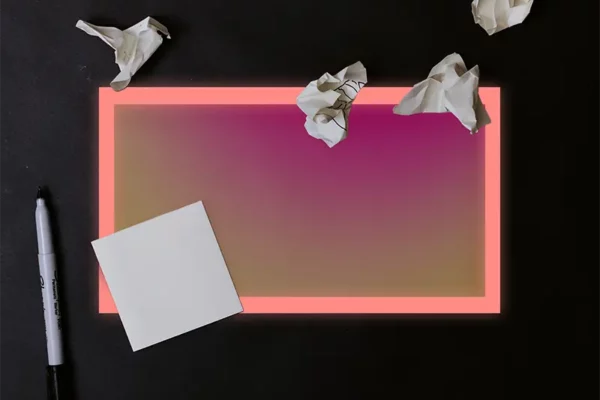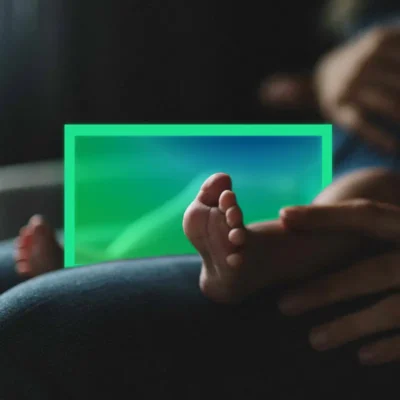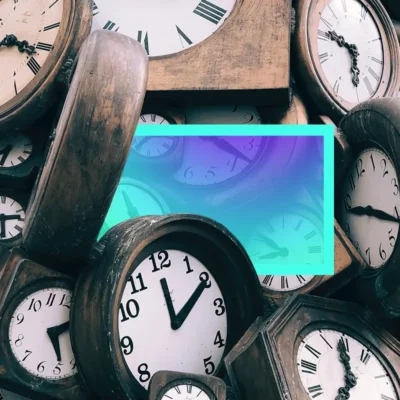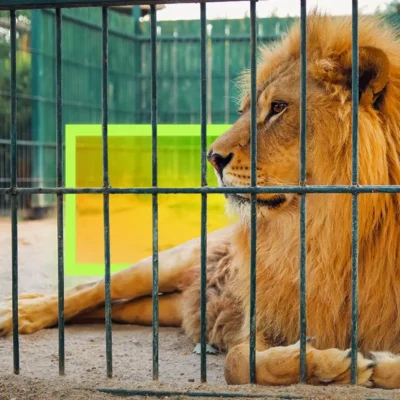Notes to self
Sitting in the school library, staring down at his unfinished chemistry homework, pre-med student Case Kenny feels helpless. He faces a difficult choice: did I choose the wrong major? And who will I disappoint if I admit that? Now an acclaimed podcaster (New Mindset, Who Dis?), Case shares three stories from his early life about being wrong, and how he slowly learns what’s right for him. The key: Learning to see wrongness as a chance to re-examine who he is and what his right next step might be.


Table of Contents:
Transcript:
Notes to self
CASE KENNY: I’m 15, awkward, self-conscious, and shy. I’m just always trying to fit in and make a good impression. The idea of speaking up in front of other people in other classes petrifies me. But here in Latin, I don’t feel nervous. I feel eager. Accepted. This is the one place where it’s no big deal if I make mistakes. It’s okay to be wrong, to mis-pronounce a word. Dr. Kolakus’s enthusiasm gives us permission to try again.
ROHAN GUNATILLAKE: Listening to Case Kenny’s acclaimed personal development podcast “New Mindset, Who Dis?,” you might get the impression that he has all the right answers.
But, like many of us, Case spent a long time worrying that every choice he was making was wrong. In this episode, Case shares a story about being wrong again and again, and shows us how his love of languages and willingness to question himself led him to finding comfort in his uncertainty.
In this series, we combine immersive first-person stories, breathtaking music, and mindfulness prompts so that we may see our lives reflected back to us in other people’s stories. And that can lead to improvements in our own inner lives.
From WaitWhat, this is Meditative Story. I’m Rohan, and I’ll be your guide.
The body relaxed. The body breathing. Your senses open. Your mind open. Meeting the world.
KENNY: The fluorescent lights of my college library buzz overhead. I rub my eyes and stare down at the open textbooks covering the table. My narrow-lined notebook is completely blank. Organic Chemistry is my arch nemesis. My brain feels scrambled. I lean back in my chair and look across the room at the long row of bookshelves, filled with medical textbooks, academic journals, and more chemistry.
It’s freshman year. I’m pre-med at college, and, if I’m honest, I don’t really know why. It’s what my older brother did. He just graduated from Harvard. He’s headed to medical school. My mom was a lawyer. There’s an expectation from my family that I should go down a similar path. For them, working a traditional profession is right. I envy their clarity. My chest fills with fear when I think, what if I never find my path?
I get a chemistry tutor. Together, we sit in the library lounge by the soda machines. We pick a problem, and I try to solve it. But I can’t get through it without him. I feel such a disconnect from the material, like no amount of effort is going to help me get this. In the lab, it’s the same. I work in a group, and I see the engagement on my classmates’ faces as we sit around the tall soapstone tables. I look on, blankly. I did well academically in high school, but here I feel out of my depth. I feel helpless. What’s wrong with me? Why can’t I figure this out?
Sitting in the library, staring down at my pencil and notebook, I take a few deep breaths and remember something my parents always told me: “Do things that you’re good at and that you’re drawn to.” Okay. What am I good at? What do I actually like?
Languages. I’ve always loved studying languages. The way I can close my eyes and visualize words forming sentences. I hear words like music. Subject and verb become the chorus and verse of a sentence’s structure. Before I came to college, and before I started down this path, I was drawn to languages.
Years earlier, I settle into my seat in the front row of my high school Latin class. Our teacher, Dr. Kolakus, wears bottle thick glasses and a big smile. I smile back. In Latin class we read and translate sentences together, learn where we’re wrong, correct it, and keep going. I dust the eraser crumbs off my spiral notebook in preparation for our next exercise. “Take two minutes to translate this passage,” Dr. Kolakus says. She crosses the room back to her disheveled desk that’s covered in philosophy books written in Latin. Dr. K is really nerdy. The two things she loves most are Jeopardy! and Latin. Here in this small class, we’re all on the same wavelength.
Our group digs into the text: a 2,000-year-old story about a carriage in a ditch. I feel my body relax as we work through the translation together. I feel at ease, at peace.
I’m 15, awkward, self-conscious, and shy. I’m just always trying to fit in and make a good impression. The idea of speaking up in front of other people in other classes petrifies me. But here in Latin, I don’t feel nervous. I feel eager. Accepted. This is the one place where it’s no big deal if I make mistakes. It’s okay to be wrong, to mispronounce a word. Dr. Kolakus’s enthusiasm gives us permission to try again.
Back in my college library, I stare down at my unfinished chemistry homework. I reluctantly make my decision: Pre-med is not for me. I picked the wrong thing. I screwed up. I’m wasting time.
I need to lean into what I’m good at. Languages. I had always intended to study Chinese, so I decide to make Mandarin my new major. And, just to hedge my bets, I double major in Arabic. Both languages can come in handy. I can use them for a career in international law or government work. I’m still on a path towards a traditional profession — a path that my parents and brother have shown me is right for them. So I assume it’s right for me.
I’m optimistic. This time, I tell myself, it will work out.
GUNTATILLAKE: Is there something that you’re not sure you’d be good at? If you’re ever not sure, try turning to silence. Letting the body be still, stiller than you think it can be. Quiet enough to notice the movements of the heart. Using silence and stillness as opportunities for the answers to come to you.
KENNY: The streets of Shanghai are busy and humid in the summer. The smell of cars, sweat, dust, and spices hangs in the air. It’s an onslaught on my senses, but I’ve only got one thing on my mind right now: Food.
Near my apartment there’s a bright cafeteria-style restaurant that smells delicious. Through the front window, my eyes scan the steaming hot dishes. My mouth waters. I walk in, take a tray, and examine the options behind the plexiglass. The guy working by the food smiles and says something to me, but I can’t understand a single word. He’s speaking Shanghainese, a dialect that everyone speaks here in Shanghai. Everyone except me.
I’m 20 years old, and it’s been a few weeks since I decided to move to Shanghai for the summer. All my college friends got internships at big accounting or consulting firms in Chicago. I knew I needed to do something too, but what could I do with a Mandarin major? I panic. The optimism I felt heading off down this new path now seems foolish. I worry I screwed up. That I’m being left behind.
But, I search the alumni database and find a guy who’s a partner at a law firm in Shanghai. He says if I can figure out how to get here and where to live, he’ll give me paralegal work experience in the firm. It seems crazy, but I’m eager to get out of the classroom. Get some real world experience. Real world skills. I book my ticket and tell myself it will work out. I move here in the span of a week. It’s crazy.
Back in the restaurant, I try using my Mandarin to say, “I’d like two helpings of this dish with the meat.” The man looks at me blankly. It’s useless. I’m so hungry. I sheepishly make eye contact again. Smile. I point at the pan of food I want. He seems to understand. I give a hearty round of thank-yous in Mandarin — shei shei, shei shei — and I pay.
As I exit back onto the crowded street with my meal packaged in a styrofoam clamshell and plastic bag, I feel frustrated. Did I waste three years excelling in college Mandarin courses just to get to a place where I am pointing? Even when I do find someone who speaks Mandarin, they speak way faster than I’m used to. Was learning Chinese in a classroom halfway across the world the wrong move? Why did I think this would work?
Then, I catch a whiff of the food I ordered. It smells delicious. Despite the language barrier, I accomplished my goal. I have a tasty, authentic meal. There’s an American burger chain right down the road that I could have gone to. It’s safe. Comfortable. But I chose not to do that. And I’m proud of myself for that choice. This restaurant becomes my go to. Being in Shanghai, I start to feel the benefits of embracing uncertainty and stepping outside my comfort zone.
A few days later, I’m standing in a crowded train car at the Xintiandi Station. It’s rush hour. Men wear suits. They carry briefcases and lunchboxes. Kids on their way home from evening school look tired and hungry. I am too. All of a sudden, I hear the high screech of brakes. The train stops with a jolt. The doors open. The PA system comes on, and someone starts shouting instructions in rapid Shanghainese. Again, I can’t understand a word.
People look alarmed. They jump into action, fleeing from the train onto the platform. Someone’s shoe flies through the air as he runs out the door, elbowing someone next to him. I rush out and follow the crowd down the platform; my pulse races. I have no idea what’s going on. I feel on edge as we emerge from the station into the relative calm of the city.
Nothing about China is what I expect. Growing up, I was taught to avoid risk as much as possible. “Don’t keep the AC on too high or you’ll catch a cold. Don’t cross the street before the light turns or you’ll get hit by a car.” Here in Shanghai, I can’t avoid unfamiliar situations or uncertain outcomes. The assumptions I made about how things would go here, how easily I would be able to navigate the language, the culture, it’s all thrown out the window.
My internship at the law firm isn’t what I expect either. There isn’t the action and glamor I see on TV. It’s cubicles, heads down, bright lights, and the buzz of a fax machine. I feel totally out of my element. I don’t even know how to tie my tie. A guy in the men’s room at the office sees me struggling with it one morning. He laughs and helps me. I spend long days manually turning pages of contracts for clients to sign. It’s like standing next to a concert pianist, only there’s no music. I thought I’d have the chance to write, to express my point of view. Instead, I sit in a small cubicle and like so many people here, I click away and make spreadsheets and do mundane clerical work. It’s disheartening.
Like with chemistry, I’m coming to the unwelcome conclusion that this might not be for me. That familiar fear fills my chest. First pre-med doesn’t work out, now this. What am I going to do now? How am I going to meet the expectations of my friends? My family? Myself? Do I have to start from zero again? How could I be this wrong?
On the other hand, I’ve been wrong about pretty much everything since arriving in China, and yet I’m okay. It’s actually been a pretty amazing experience, all things considered. By unlearning the assumptions I’ve carried, embracing things like being lost or embarrassed, I’m starting to find a new sense of power.
After my internship, I return to the United States for my senior year of college. I return with less clarity but more confidence. I have no idea what I’m going to do with my life. I don’t know what my path to a profession looks like. And part of me wonders maybe that’s ok? My experiences in China seed the belief that in time I’ll figure it out. What I don’t realize is it’s going to take me eight years to really embrace that idea.
GUNATILLAKE: Remember my tip about turning to silence in times of uncertainty. Let’s try that now. Softening the shoulders, and dropping into the space between sounds. Instead of being caught up in the thoughts and feelings and sensations in the foreground of our experience, being curious about the background. Resting in the silence behind all things. A skill worth cultivating.
KENNY: 4 a.m. at O’Hare. I’m at the airport for yet another dawn flight. I’m 30 now. I travel twice a week. Today it’s St. Louis.
After graduating college, I take a job in advertising sales. Despite everything I learn in China about embracing uncertainty, I ultimately feel like I need to get serious. To establish myself. The fear of not going down the right path keeps chipping away at me.
My salary as an account executive is decent, and this is a job with a trajectory. It’s not something I’m passionate about necessarily. But I’m a professional. That’s what matters, right? I have a brutal travel schedule, but this morning I’m more tired than usual. Last night, my girlfriend and I broke up. We had been dating for more than three years. We lived together. I assumed it would last. Until last night, everything seemed to be on the right track. My career, my relationship. All the pieces were in place. I was doing what I was supposed to be doing. This change feels dramatic.
I board the plane and buckle into my seat. I feel weighed down with emotion. As the plane lifts off, I look out over the left wing. A brilliant orange horizon backlights the Chicago skyline. I close my eyes. I breathe. I feel the warmth of the paper coffee cup in my hands. The glow of the sunrise coming in the window. I’m surprised by how relieved I feel, how relaxed my body feels, even in the wake of this momentous and emotional decision. In my gut, I know breaking up is the right move. We end things with surprising clarity and grace. But it still hurts. It hurts to have been wrong about something that felt so certain for so long.
Then a thought washes over me: What if that’s not the only thing that’s wrong? What if I’ve been wrong about everything? About my job, my career, the assumptions I have in my life about everything?
I’ve felt this before. In college. In China. Usually when I have thoughts like this I’m filled with anxiety and regret. But not today.
Now I feel curious. I want to look at every aspect of my life, relationships, career, inner life, everything, and ask that question: What if I’m wrong? And I don’t want to answer that question according to other people’s expectations. I can’t shape my life around what’s right for them. I have to find what’s right for me.
I don’t know the answer yet. But I do know where to start. What am I good at? What am I drawn to?
In the early spring of 2020, I brace myself against the cold wind howling through downtown Chicago. I take my hands out of my pockets to hold up a sticky note and take a picture of it. On it are words I’ve written: “Life changes for the better when you prioritize how your life feels instead of how it looks.” I’ve selected it from a wall of sticky notes in my apartment. I’ve always been able to visualize words flowing across a page, and now I see them flow across my walls. Since I’ve had a lot of practice thinking about my mistakes, I’ve decided to make sharing what I’ve learned an integral part of my life. I share pictures like this on social media. They resonate. Soon my account goes viral.
In the two years since my sunrise flight, post breakup, I’ve done a lot of reevaluating. I’ve changed the expectations I have for myself and thought a lot about what I’m drawn to. What really interests me and what I’m really good at. Again, I’m brought back to language.
I remember how comfortable I felt in my high school Latin class. How excited I was. How it was okay to be nerdy and goofy and yes, sometimes wrong. The language I’m playing with now isn’t Latin or Arabic or Mandarin, but plain old hand-written English. I post notes with simple phrases all over the city. Stick them to lampposts, to door jambs. I write a book that compiles simple thoughts and lessons I’ve learned. I experiment with different mediums and continue to grow my audience. My profession isn’t traditional. I’m using my understanding of language, the rhythms, the music, to communicate what’s really important to me. It feels right. But I never would have started down this path if I hadn’t first accepted that I was wrong.
I think back to my college chemistry lab, to Shanghai, to the restaurant there. Each of those experiences provided a lesson I’m only now able to understand: We are, in fact, often wrong about everything. Once we accept that, we can use that wrongness to re-examine who we are and what our next steps might be. I see now that each bump on my path, each false start, is an opportunity for me to be curious. It isn’t the same thing as starting from zero.
I understand that there’s no right way to live my life, but there is a wrong way. The wrong way is to think there’s a right way. To assume there’s a right way to be happy, a right way to have a career, a right way to be in a relationship. To be successful. To be fulfilled.
My new life is weird and creative and bold. But right now, I wouldn’t change a thing. There might come a day when it’s time to do something else, or start a new chapter. When that happens, I know what to do. Be curious. Be open. Be me.
Rohan’s closing meditation
GUNATILLAKE: Thank you Case.
Case’s story has me reflecting about what it means to be wrong.
And in the way Case describes it, I think it’s something about perspectives and assumptions. Thinking the world is one way when in the end it turns out to be another. When our ideas of things meet reality.
So let’s go with that idea for our closing meditation together. There are three mini games we can play to do that.
Our first game is a guessing game.
With our face relaxed and chest soft, the next thing that catches your attention, the next thing your awareness will latch onto, will it be physical or mental? Got your guess? Good. Now let’s wait and see.
Ok so were you right or were you wrong? In this case, it doesn’t matter so much. The point of the game was the game. Laying in wait to see if our guess was right or not, meant that our attention was open, bright, and curious.
Because sometimes being right or wrong doesn’t matter. What matters is the awareness and the curiosity to discern the difference.
Ok, onto our second game.
While I recognize that it might be tricky for some of you, what I’d like you to do is bring your body to mind. Think about your body and notice what thoughts arise.
Now, drop the thoughts about your body, and instead — with eyes closed if that is safe to do — feel what the whole sense of the body is like. Not trying to feel any particular part, but instead feeling the whole, our physical being if you like.
Notice how different these two experiences are. First, our thoughts about the body. Then, the felt experience of the body. Thoughts vs. felt experience. Ideas vs. reality.
Ok. Let’s move to our third mini-game inspired by Case’s story. Again, only do this if this feels ok. The invitation is to think about your mind. If I asked you to describe what your mind is like in general in just one word, what word would you tell me?
And now again, drop the thoughts about your mind and instead know it. Know your mind as it is, directly, not your idea of what your mind is like. And give it a name.
What difference did you notice? The word you used to describe what you think your mind is like and the felt experience of your mind just now.
Ideas vs. felt experience. Fantasy vs. reality.
Case talks about how each time we’re wrong, it opens up a new opportunity. So what we’ve done here in our practice is use direct knowledge of the reality of what our bodies and our minds are like to undermine, just a little bit, our held ideas or what they are like.
The more we use mindful awareness in this way, the more we realize that the stuff of reality is so different to the stuff of ideas. Both are important, but they are not the same thing.
And as we learn to not confuse the two, the less tangled up in life we’ll be, wanting it to be different from what it is.
Thank you, Case.
And thank you.
Be well.
We’d love to hear your personal reflections from Case’s episode. How did you relate to his story? You can find us on all your social media platforms through our handle @meditativestory, Or, you can email us at: [email protected].





